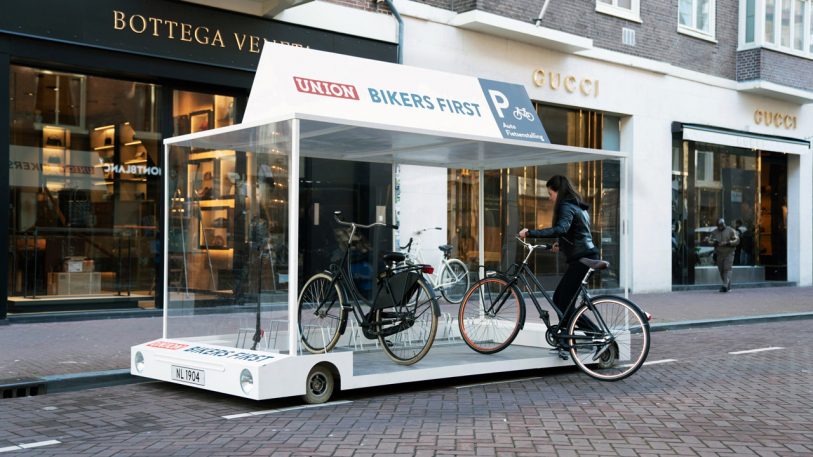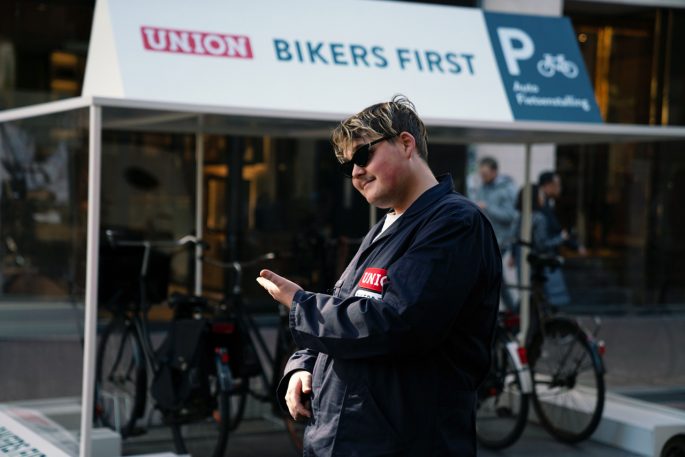On a day in late February, a shed-like vehicle pulled up in front of a Bottega Veneta store on a high-end shopping street in Amsterdam and parked for the day. Inside the structure–exactly the size of one parking place–was a bike rack designed to bring extra infrastructure to an area where it’s difficult to find a place to lock a bicycle, even in bike-obsessed Amsterdam.
“It ‘steals’ a car parking space, to allow parking for eight bicycles,” says Hugo Velthuis, manager of Union, a Dutch bike brand that worked with the creative agency Natwerk on the intervention. “[It’s] an innovative way to give bikes priority over cars.”

The pop-up bike shed, with tiny wheels, is equipped with a license plate so it can legally use a parking space even though it isn’t a typical vehicle. “We found a little loophole to fix that,” says Velthius. “Sometimes you must be a bit creative to make things work. Especially when it is for a cause you really believe in.” The team then fed the parking meter, which costs €4 (about $4.50) an hour in the area.
The intervention is a clear illustration of how the space that cities leave for cars could be used more efficiently. Cities dedicate an enormous amount of land to cars, particularly in the United States. In L.A., for example, parking takes up 17,020,594 square meters of land, or an area roughly the size of 1,400 soccer fields. It’s more space than existing cars actually need. Seattle, known as a bike-friendly city, has more than five parking spaces for every household. Des Moines has roughly 19 parking places per household. As the pop-up bike shed shows, the same amount of space could serve more people if it was used for bikes. (The same is true on city streets, where numerous visualizations show how many more people could travel on buses, trains, bikes, or as pedestrians than in cars on the same amount of land.)

Even in Amsterdam, where there are far more bikes than cars–and in a country that is struggling to reach ambitious goals to cut its carbon footprint–the intervention faced some resistance. “We had an interesting discussion with a shopkeeper who told us his clients want to come by car and want to be able to park nearby,” says Velthius. “But we think we can turn that mind-set around by making the city better accessible for bikes and leave less space for cars. By this, we hope car addicts consider switching to cycling.”
The team may now move the pop-up bike rack to other locations. “We just wanted to make a bold statement and fuel the discussion,” he says. “But it is a good idea that got great response from a lot of people. We even caught interest from other cities and states. So, yes, it is very well possible we will be using it quite more often.”
The extended deadline for Fast Company’s World Changing Ideas Awards is this Friday, December 13, at 11:59 p.m. PT. Apply today.
